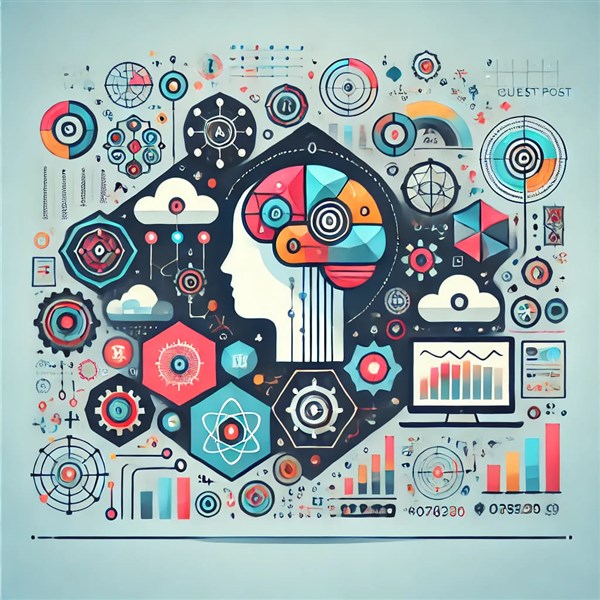Unable to find what you're searching for?
We're here to help you find it
As organizations across every industry continue to digitize and automate, cognitive computing is emerging as a game-changer. More than just artificial intelligence, cognitive computing blends AI, data science, machine learning, and natural language processing to simulate human reasoning, enhance decision-making, and enable smarter systems.
Professionals equipped with a cognitive computing certification are not only well-versed in the theory—they're trained hands-on in cutting-edge technologies that power intelligent automation. Whether you're a data analyst, software engineer, business consultant, or tech leader, mastering these tools gives you a future-proof advantage in an AI-driven world.
In this blog post, we’ll explore 10 essential technologies you’ll master through a cognitive computing certification, and how they empower you to build advanced solutions across healthcare, finance, customer service, logistics, and beyond.
Cognitive computing refers to systems that mimic human intelligence by learning from data, interpreting context, recognizing patterns, and making informed decisions. Unlike traditional AI that follows rules or scripts, cognitive systems can:
Leading certification programs (offered by IBM, Microsoft, edX, Coursera, and more) teach a multidisciplinary toolkit combining data science, AI, NLP, and cloud computing.
Let’s dive into the top 10 technologies you'll get hands-on experience with.
At the core of every cognitive system is machine learning, which enables systems to learn from data and improve over time without being explicitly programmed.
Through certification training, you’ll gain:
ML empowers cognitive systems to adapt and personalize their outputs—crucial for industries like e-commerce, banking, and education.
NLP allows machines to understand and generate human language, including speech and text. It’s what powers chatbots, voice assistants, and sentiment analysis tools.
In a certification course, you’ll learn:
NLP is vital for applications in customer service, HR tech, and healthcare diagnostics.
Deep learning mimics the human brain through neural networks—enabling breakthroughs in image recognition, speech synthesis, and autonomous systems.
You’ll master:
From cancer detection to facial recognition, deep learning powers the most advanced cognitive applications in the world.
Cognitive computing requires massive datasets. You’ll gain exposure to Big Data platforms and learn how to process and analyze data at scale.
Key topics include:
Understanding big data tools allows you to build cognitive solutions that scale with enterprise needs.
Insights are only valuable when they’re understood by decision-makers. You’ll learn how to present your findings with clarity and impact.
Certification programs teach:
Visualization skills are essential for analysts, consultants, and product managers in data-centric roles.
Rather than build from scratch, cognitive computing certifications introduce pre-built AI platforms that accelerate development.
You’ll work with:
These platforms allow you to prototype intelligent applications quickly, without deep ML expertise.
Cognitive systems live on the cloud, where they can access elastic compute resources and integrate with digital ecosystems.
You’ll learn to:
This cloud integration makes your cognitive solutions accessible, scalable, and production-ready.
AI and cognitive systems come with privacy, bias, and ethical challenges. Certifications often include modules on:
Understanding these issues ensures your systems are transparent, fair, and accountable—a major priority for regulated industries.
Many certifications introduce RPA tools that work alongside cognitive systems to automate repetitive tasks.
You’ll explore:
RPA + cognitive tech = digital workers that reduce costs and boost efficiency.
Cognitive systems are built for humans—so user experience (UX) and interaction design are critical.
You’ll learn:
These skills help you create empathetic, intuitive user experiences powered by AI.
🏁 Final Thoughts
A cognitive computing certification doesn’t just boost your resume—it transforms your ability to build systems that think, learn, and evolve. From NLP and deep learning to big data and cloud deployment, you’ll master 10 powerful technologies that define the future of AI.
Whether you’re designing intelligent apps, optimizing customer experiences, or driving digital transformation, these skills position you at the forefront of tech innovation.
In the current technological era, staying updated with the latest advancements is not just beneficial, but necessary. With a Cognitive Computing Certification, you can master the top technologies that are shaping the future of the industry. So, invest in your future by getting certified with Koenig Solutions today.

Aarav Goel has top education industry knowledge with 4 years of experience. Being a passionate blogger also does blogging on the technology niche.










